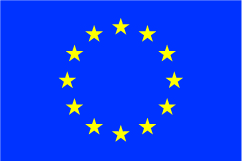Entrepreneurship drives innovation, competitiveness, job creation and growth. It allows new innovative ideas to turn into successful ventures and can unlock the personal potential of individuals. The Entrepreneurship Action Plan 2020 (EAP 2020) states that “investing in entrepreneurship education is one of the highest return investments Europe can make” and the Europe 2020 strategy recognises entrepreneurship and self-employment as key for achieving smart, sustainable and inclusive growth. To bring Europe back to growth and higher levels of employment, Europe needs more entrepreneurs. EAP 2020 sets out a number of actions to be taken to support entrepreneurship in Europe including “developing entrepreneurial education and training” and “identifying positive role models”.
Young people have been hit hard by the global economic crisis and youth unemployment levels remain persistently high as the recovery in Europe advances slowly. Youth unemployment rates at the end of 2016 in partner countries stood at. One stark feature of the current employment crisis is the high number of graduates currently out of work or working well below their skill and educational level. In the words of one commentator “this is painful human face of the crisis as world’s best and brightest are wasted” (Angel Gurría, The Times).
The critical role played by start-ups in driving economic development and job creation is increasingly understood. Factory floors are progressively being replaced by creative communities whose raw material is their ability to imagine, create and innovate. In this new digital economy, immaterial value increasingly determines material value, as consumers look for new and enriching ‘experiences’. Enterprise policy aimed at achieving Europe 2020 targets centres around the development of the SME sector. In 2015, SMEs accounted for over 99% of all non-financial enterprises in Europe. 92.2% of all SMEs are micro-enterprises with fewer than 10 employees while the typical European micro-enterprise employs only 2 to 3 persons. There are some 21 million SMEs in Europe, supplying about 85% of jobs (www.euronews.com) contributing 58.1% of the total value-added created by EU businesses. In past eras ‘jobs for life’ and ‘skills for life’ predominated in a marketplace of stable trades and professions; however today’s young people leaving education are moving into a world of “occupational quick-sands and volcanoes” in which entrepreneurship can be a viable alternative to dependent labour (OECD 2010).
On top of being essential drivers for diversity, the creative industry sector is one of Europe’s most dynamic sectors comprising highly innovative companies and contributing approximately 2.6% to EU GDP. It is a sector with high growth potential and provides quality jobs to over 5 million people (Eur-Lex: Green Paper – Unlocking the potential of CCIs, 2010). Creative businesses often contribute to boosting local economies in decline, contributing to the emergence of new economic activities, creating new and sustainable jobs and enhancing the attractiveness of European regions and cities (DG Enterprise 2011). EU cohesion policy has recognised the multifaceted contribution of the creative industry sector to its strategic objectives of convergence, competitiveness and employment.
For most creative individuals developing a new product or idea, the focus is firmly placed on what it can do; how it can be used; what makes it different. While these are all essential pre-requisite to any future potential business of equal importance are questions like: Who are the management team behind the business? What is the business model proposed? How will intellectual property be protected? Does the product or idea have scalable potential? So while having the right idea might get you half the way to success, it will only get you half the way as core business management skills are also required. While individual capacities like creativity, motivation and powers of persuasion are often considered to be key attributes that drive new business ventures marrying those skills to business acumen brings success.
Entrepreneurship training is a rapidly developing policy field with strong potential for learning from other areas, but it is important to focus on the real needs of entrepreneurs, which extend well beyond traditional business planning and accounting skills (OECD 2011). It is widely accepted that target group specific, coherent entrepreneurship education initiatives are in short supply throughout Europe. Bringing down barriers to entrepreneurship; exploring options for becoming an entrepreneur; promoting more favourable attitudes towards entrepreneurship in public opinion; reducing the stigma of failure for entrepreneurs; promoting entrepreneurial skills as valuable life skills; are issues with a European dimension that require a European response.


 Français
Français Română
Română Português
Português čeština
čeština